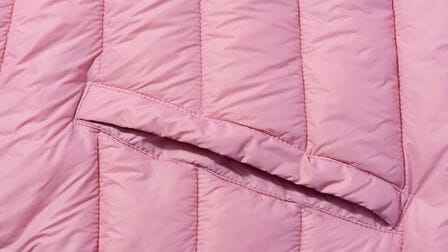Doing laundry is an essential household chore that keeps your clothes clean and helps prevent the buildup of dirt, bacteria, and odors in your home. But with busy schedules, it can be hard to keep up with the laundry demands of you and your family. So how often should you really be doing laundry each week? Here is a closer look at some general guidelines.
Types of Clothing and Recommended Washing Frequency
Undergarments and Socks
- Underwear, Bras, Socks - These garments come into direct contact with your skin and should be washed after every wear. Bacteria and odor can accumulate quickly otherwise.
- Athletic Clothes - Gym clothes, running gear, sports uniforms should be laundered after every wear. The materials are designed to wick sweat, but that moisture keeps odors and bacteria next to your skin if not cleaned regularly.
Tops
- T-Shirts and Tank Tops - Casual shirts made of cotton or cotton blends can often be worn a couple times between washes if not visibly dirty or smelly. But workout tops should be washed after each wear.
- Sweatshirts and Fleece - These heavy layers tend to show fewer signs of wear. But if worn against your skin, they should be washed every couple wears like t-shirts.
Bottoms
- Jeans and Pants - Sturdy fabrics like denim can go longer between washes, even up to 10 wears if they are not tight fitting. But a general rule is to wash every 4-5 wears or if dirty or smelly.
- Yoga Pants and Leggings - These form-fitting bottoms need more frequent washing. Aim for every 2-3 wears, and immediately after workouts. The fabric tends to hold odors and bacteria otherwise.
Outerwear and Accessories
- Jackets and Coats - During colder seasons, aim to wash heavy outer layers every 5-10 wears depending on use. Rain jackets may need cleaning if salty or dirty from outdoor use.
- Hats, Scarves, and Gloves - Accessories worn frequently close to hair and skin benefit from weekly washing during peak usage periods.
Bedding and Towels
Sheets and Pillowcases
- Sheets - Bed sheets pick up body oils, dirt, and dead skin cells as you sleep. Wash them at least every other week, or weekly if you have skin conditions or allergies.
- Pillowcases - These can collect drool, hair products, and face oils overnight. Wash every 1-2 weeks for hygiene and clearer skin.
Blankets and Comforters
- Blankets - Depending on use and materials, wash blankets every 2-3 weeks in cold water to prevent damage from agitation.
- Comforters - Only wash large comforters 2-3 times per year. Use a gentle cycle and commercial machines to prevent damage.
Towels
- Bath Towels - Wash after every 1-2 uses. Wet towels foster microbial growth very quickly when left bunched up.
- Hand and Face Towels - Swap these out and wash after 2-3 days maximum. Shared family towels can spread germs otherwise.
- Kitchen Towels - Due to frequent contact with food and high bacterial growth when wet, wash kitchen towels daily or every other day.
Other Laundry Items
Curtains and Rugs
- Curtains - Wash curtains every 2-3 months to keep them fresh and prevent visible buildup of dirt and odors. Check manufacturer’s instructions.
- Rugs - Vacuum high traffic area rugs weekly and wash every 2-3 months. Pet accidents may warrant more frequent laundering.
Workout Gear
- Yoga Mats - Disinfect weekly by scrubbing with antibacterial soap and water. Deep clean with hydrogen peroxide monthly.
- Gym Bags - Empty out and disinfect gym bag interiors biweekly. Odors and moisture breed bacteria very quickly otherwise.
Laundry Tips and Tricks
- Sort clothes by color and fabric type to prevent damage and fading.
- Use less detergent - most people use too much which leaves residue.
- Wash most clothes in cold water to save energy and help fabrics last longer.
- Line dry when possible to cut energy costs and prevent heat damage.
- Don't let wet laundry sit for more than a day before drying to avoid musty smells.
- Clean the lint trap before every dryer load for fire safety and efficiency.
Conclusion
When determining how often you should do laundry, consider what fabrics are against your skin, how heavily items are worn, your lifestyle, and if clothes show visible signs of dirt or odor. While some hardy items or outer layers can go 10 wears between washes, most everyday clothes and bedding fare best with weekly laundering. Establish a flexible but consistent laundry routine that fits with your schedule.
















